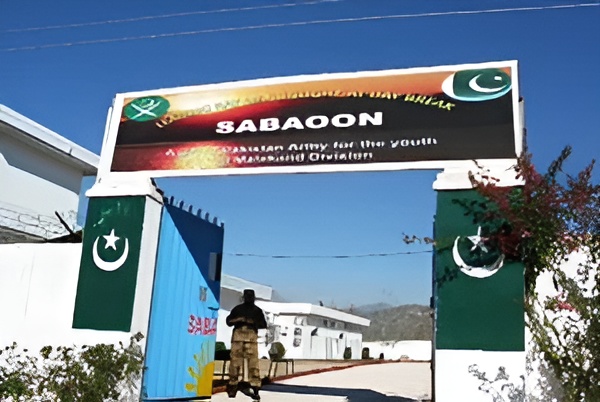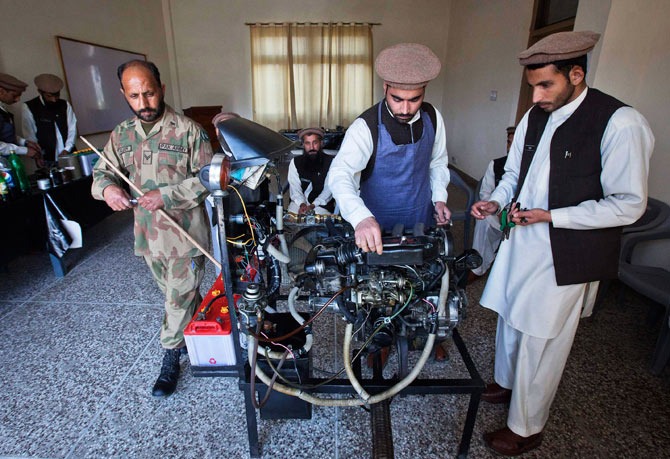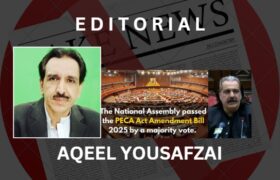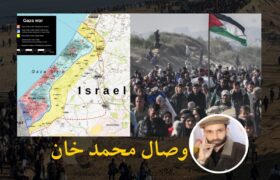Shahzad Masood Roomi
Religious, ethnic and linguistic radicalization is a growing challenge in many third-world countries, and Pakistan is no exception to this. When in a society, such radicalization meets with socio-economic degradation, the result always is a national catastrophe. This is exactly what has transpired in Pakistan in the last 2 decades. Existing fault lines on sectarian, ethnic and linguistic lines were triggered by anti-state hostile forces taking advantage of poor socio-economic profile. Young minds in KP and Baluchistan have been the main victims of religious and ethnic radicalization.
Poverty, lack of quality education, and a weaker sense of ownership of the state acted as catalysts providing a conducive environment for hostile forces to cultivate the next wave of foot  soldiers through radicalization. One of the root causes of radicalization in Pakistan is the inadequate investment and focus on the education system. Even after 76 years of independence, Pakistan’s total federal-level spending on education is below 2% of GDP. The situation in smaller provinces like KP is even more deplorable. According to international standards set by the UN, minimum allocation for education must be equal to 4% of GDP.
soldiers through radicalization. One of the root causes of radicalization in Pakistan is the inadequate investment and focus on the education system. Even after 76 years of independence, Pakistan’s total federal-level spending on education is below 2% of GDP. The situation in smaller provinces like KP is even more deplorable. According to international standards set by the UN, minimum allocation for education must be equal to 4% of GDP.
Consequently, the education system across Pakistan has failed to tackle extremism tendencies among youth and promote pluralism and diversity in society which allowed the radicalization to grow on all axes; religious, ethnic and linguistic.
Despite all these challenges, the Pakistan Army has undertaken a tireless effort in its war against radicalization through education. Pakistan Army restored the destroyed educational infrastructure in KP and in Newly Merged Districts (NMDs). Its work is even more commendable as not only it builds new education infrastructure but also specifically runs anti-radicalization programs for captured militants. The services of professional psychiatrists were sought in this regard. After initial de-radicalization phase, these young minds were equipped with vocational training where they were taught various  practical skills so that they could contribute towards a peaceful society and earn for their families as well. It is a noteworthy fact that these efforts of Pakistan Army, along with civilian institutions, were going on in parallel with its anti-terrorist campaign across the country.
practical skills so that they could contribute towards a peaceful society and earn for their families as well. It is a noteworthy fact that these efforts of Pakistan Army, along with civilian institutions, were going on in parallel with its anti-terrorist campaign across the country.
Despite these efforts, there are structural issues with the education system in Pakistan which need to be sorted out as quickly as possible by the elected government as it will require a multi-department effort.
The most prominent issue is parallel education systems. Many schools in the country are madrasas that offer only Islamic education. Such institutions, at times, propagate extremist ideologies that sow the seeds of radicalization in the minds of young students. Moreover, the public education system is marred by a lack of resources, poor infrastructure and low-quality education.
Apart from additional investment in education at higher secondary, secondary and primary levels, it is essential to have a pool of professional trainers for the teachers. Universities are also among places from where political violent ideologies and ethnic radicalization take place. Promoting interfaith and inter-ethnic dialogue is the need of the hour. Discipline is an obvious imperative but at the same time, students must be provided platforms to express their views and emotion on important developments and events in the country.
Poverty, unemployment, and social inequalities serve as catalysts in fueling extremist tendencies and a radical mindset. While education alone cannot fully address this complex problem, it can play a crucial role in empowering individuals and communities to confront the root causes of radicalization. The real difference will be made by social justice and economic prosperity. To this end, the government must create a political consensus for long-term economic development and socioeconomic uplift programs.
Another critical aspect missing in Pakistan’s educational system is its irrelevance to emerging marketplaces. The focus must be put on creating a strong vocational education system that can put less privileged youth on jobs at a quick time before their minds can be captured and radicalized. This was the vision behind the Pakistan Army’s drive for vocational training programs for young minds in NMDs of KP. Such programs must be spread across the country. Not only it will help in creating economic opportunities for youth it will also play a critical role in creating a sense of ownership in their mind for the country.
One major aspect of countering radicalization through education is promoting media literacy and digital citizenship. In today’s interconnected world, young people are exposed to a wide range of online content that may contain extremist messages or hate speech. Therefore, it is crucial to educate them on how to critically evaluate sources of information, verify facts, and engage in respectful online discourse. This can be done through school curricula, community outreach programs, and public awareness campaigns. But for all this to take place, first government must take political ownership of this drive.
Furthermore, overcoming the resistance to societal changes through education, like gender equality, from conservative religious groups, is critical. These groups oppose any changes in social order as they perceive modern education as Western or secular. To address this challenge, the federal government needs to engage in a national dialogue on the role of education in shaping its future identity and aspirations. This dialogue should involve representatives from all sectors of society, including religious leaders, civil society organizations, youth, women, business associations, and academia.
Finally, it must be understood that any durable change in a social order affected by religious, ethnic and linguistic radical ideologies is a time-consuming process. There is no quick fix hence such an enterprise would require a very long-term political commitment and ownership from federal government and provincial governments. Only education can solve Pakistan’s current and future problems as an illiterate and radicalized society is a threat both to the world and to itself!




